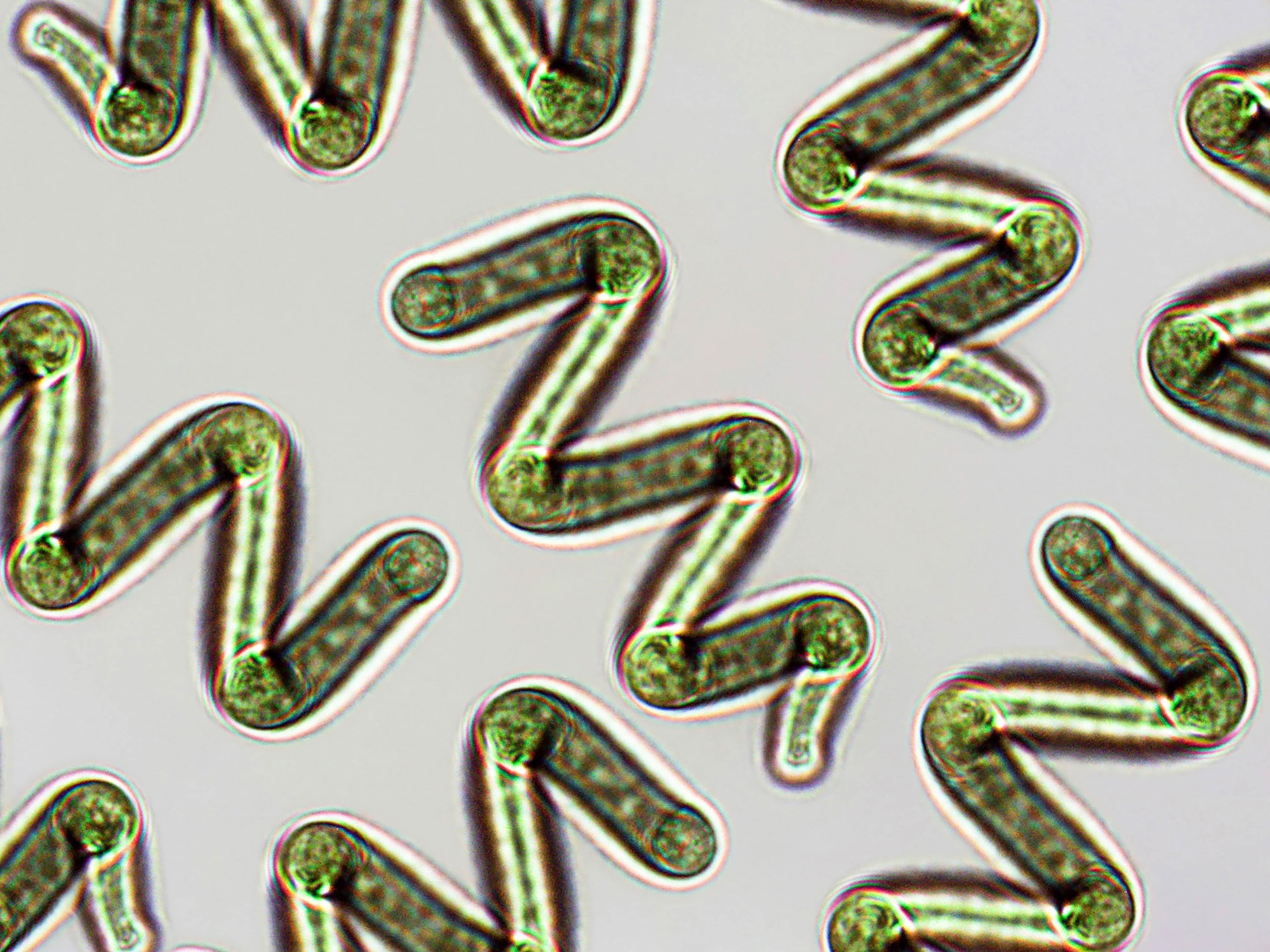
In an evolving health landscape, emerging research continues to highlight concerns that could impact everyday wellbeing. Here’s the key update you should know about:
Discover how adding microalgae like Spirulina to your diet could be a natural and sustainable way to manage high blood pressure, especially if you’re at risk.
Study: Edible Algae Reduce Blood Pressure in Humans: A Systematic Review and Meta-Analysis of Randomised Controlled Trials. Image Credit: maramorosz / Shutterstock
In a recent study published in the Journal of Human Nutrition and Dietetics, researchers investigated the effects of edible algae on blood pressure (BP). Edible algae are aquatic organisms consumed as supplements or in culinary applications. Edible algae have traditionally been an essential component in Asian cuisines, and their inclusion in global diets has significantly increased over the past decades. Edible algae are available in various forms, such as dried, fresh, or powdered, and in extracts, functional foods, and supplements.
Bioactive compounds in edible algae may positively influence cardiovascular health. These compounds include fucoidan, peptides, potassium, antioxidants, omega-3 fatty acids, and polyphenols, along with inorganic nitrate in species such as Nori and Kelp, which are associated with potential BP-lowering benefits. However, the relationship between hypertension and edible algae intake remains unclear.
About the study
In the present study, researchers investigated the effects of edible algae on BP. They searched the Scopus, Cochrane, and PubMed databases for relevant studies. Studies were eligible for inclusion if they included adults who were healthy or had chronic conditions, such as metabolic syndrome, hypertension, obesity/overweight, or diabetes, and reported BP outcomes. Only experimental studies with at least a four-week intervention were included.
Duplicate records were removed, after which titles and abstracts were screened, followed by a full-text review.. Relevant data were extracted: study design, sample size, intervention duration, algae type, participant characteristics, baseline and post-intervention BP values, and daily dosage, among others. The revised Cochrane risk of bias tool for randomized trials was used to assess the risk of bias. Random-effects models were used to account for substantial heterogeneity across trials and participant characteristics.
Further, inverse variance weighting was applied to determine effect sizes and 95% confidence intervals. Publication bias was assessed using funnel plots. In addition, subgroup analyses evaluated the effects by algae type, dosage, baseline diastolic BP (DBP) and systolic BP (SBP), health status, and intervention duration. A meta-regression analysis was also performed to assess the association between algae dosage and BP outcomes.
 Spirulina sp. algae under microscopic view x40, cyanobacteria that can be consumed by humans and animals, cultivated worldwide, dietary supplement or whole food. Image Credit: Elif Bayraktar / Shutterstock
Spirulina sp. algae under microscopic view x40, cyanobacteria that can be consumed by humans and animals, cultivated worldwide, dietary supplement or whole food. Image Credit: Elif Bayraktar / Shutterstock
Findings
The database search identified 693 unique studies. Following abstract/title screening and full-text analysis, 29 studies were included. Studies were conducted in 12 countries between 2001 and 2022, including 1,583 individuals aged 18–86. These included 27 parallel and two crossover randomized controlled trials. Only nine studies had low risk of bias; others raised concerns (e.g., randomization flaws, outcome measurement issues). Trial duration ranged between four and 104 weeks. Eight trials included healthy adults, and the remainder included populations with cardiometabolic risk conditions.
In total, 19 studies examined the effects of microalgae (e.g., Spirulina, Chlorella) on BP, and 10 evaluated macroalgae (e.g., seaweeds such as Wakame or Kombu). Most studies provided edible algae as supplements, while others provided algae as tablets, pills, drinks, or powder. Critically, 12 studies used whole edible algae, while 17 tested extracts or isolated bioactive compounds. Daily algae intake ranged between 0.001 g and 8 g per day. Baseline SBP values ranged between 114 mmHg and 156 mmHg. Baseline DBP spanned from 68 mmHg to 94 mmHg.
Overall, 19 studies reported reductions in SBP and DBP with the intervention. The pooled effect of edible algae consumption indicated a significant decrease in SBP and DBP by –2.05 mmHg and –1.87 mmHg, respectively, though with high heterogeneity (I² = 75% for SBP; I² = 68% for DBP).
Subgroup analyses revealed that microalgae drove most benefits (SBP: –3.43 mmHg; DBP: –2.06 mmHg), while macroalgae showed no significant effects. Whole algae reduced SBP (–3.96 mmHg) and DBP (–2.82 mmHg) significantly, whereas extracts/bioactive compounds did not. Spirulina was the most effective microalga, reducing SBP by –5.28 mmHg and DBP by –3.56 mmHg. Chlorella showed nonsignificant trends (SBP: –2.07 mmHg, p=0.131). Studies with algae dosage ≥ 3 g/day had a significant reduction in DBP (–3.05 mmHg) and SBP (–3.71 mmHg).
Reductions occurred across durations, but SBP improvements were significant in shorter trials (<12 weeks), while DBP required longer interventions (≥12 weeks). Significant BP reductions occurred only in those with cardiometabolic risk or elevated baseline BP (≥129 mmHg SBP or ≥79 mmHg DBP), with healthy individuals seeing no significant changes. Older adults (≥46 years) experienced greater reductions.
The meta-regression analysis found no significant association between algae dosage and SBP changes. However, baseline SBP strongly predicted reductions in both SBP and DBP, explaining most heterogeneity. There was no evidence of publication bias. The study did not explore biological mechanisms, highlighting a research gap.
Conclusions
In sum, the findings reveal a significant BP-reducing effect associated with whole microalgae (especially Spirulina ≥3 g/day for ≥12 weeks), particularly in people with high BP or cardiometabolic risk. Whole algae formats outperformed extracts, suggesting potential synergy of bioactive compounds. Baseline SBP was the strongest predictor of BP reduction.
The authors caution that excessive seaweed consumption (>5 g/day) may pose heavy metal/iodine risks, though microalgae such as Spirulina are safer. Overall, the results underscore the potential of whole edible microalgae as a natural, sustainable approach for BP management, complementary to existing pharmacological treatments.
Journal reference:
- Casas-Agustench P, Mínguez S, Brookes Z, Bescos R (2025). Edible Algae Reduce Blood Pressure in Humans: A Systematic Review and Meta-Analysis of Randomised Controlled Trials. Journal of Human Nutrition and Dietetics, 38(4), e70095. DOI: 10.1111/jhn.70095 https://onlinelibrary.wiley.com/doi/10.1111/jhn.70095

